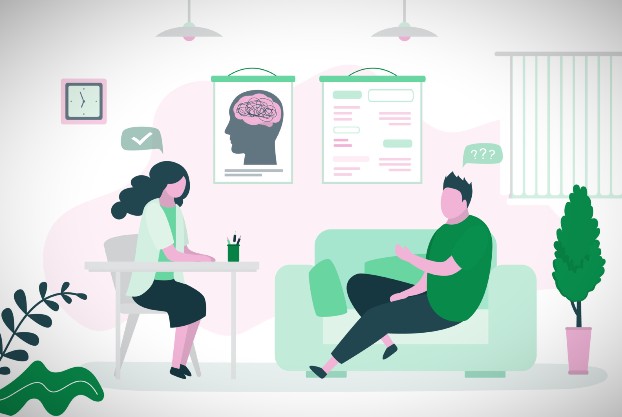Everyone has experienced those well-intentioned flashes of dramatic lifestyle transformation. Give up smoking. Join a gym and begin daily exercise. While we should constantly work to achieve these kinds of health objectives, improving our health doesn’t necessarily require us to make significant changes.
There are numerous additional minor steps you can take to enhance your general health and quality of life, and because they are simple to include in your daily routine, they will have a significant positive impact will be simple to maintain over time.
Even if you only have a short amount of time, you may use it to enhance your wellbeing Consider including the following tasks and techniques in your day: These small changes can have a significant positive impact on your general health when they become habits.
Today, we will see the post of 10 Tips for Improving Our Health Problems.
Let’s See Together…
1. Eat Slowly
Perhaps you are unaware that eating too quickly can lead to weight gain. Faster eaters are more likely to be overweight than people who eat more slowly, according to a study. According to one study, middle-aged women are 115% more likely to experience this.
The ‘fullness hormones’ your body produces when you eat alert your brain that you have had enough and should quit. Rapid eaters might consume too much food and not realize it for a while because this process takes about 20 minutes, which explains the “post-buffet bloat” you might experience. After a filling lunch. Make a point of eating more slowly the next time you eat, and watch how it affects your appetite.
2. Enjoy de-stressing
Experts recommend daily exercise, meditation, and breathing exercises to reduce stress. But even simple and enjoyable activities like having a hot bath, reading a good book, or playing with your pet can help you relax. That advice should be taken seriously because persistent stress can cause or make a number of health problems worse, such as heart disease, stroke, high blood pressure, depression, ulcers, and irritable bowel syndrome, migraines, and obesity.
Lacking a lot of time? Do not let that worry you. Like exercise, even little moments of rest are healthy. Try to spend even 10 minutes at a time doing something you enjoy to help you deal with the stresses of daily life. Just one chapter or a few laps around the block with your dog can make you feel calmer, more rested, and more energized.
If you can’t entirely stop what you’re doing, think about just taking a few slow, deep breaths. You can unwind by calming your breathing. The body produces chemicals during this relaxation reaction that may help boost immunity and reduce stress. Those with lower resting heart rates are often in better physical condition than those with higher rates.
3. Drink more water
Despite the fact that the recommendation to “drink 8 glasses of water a day” may be commonly known, few individuals actually follow it. Instead, people frequently opt to add up all of the liquids they consume each day, which typically include soda, coffee, and other drinks.
However, your body is not made up of soda and beer. Depending on age, the human body contains 60% or more water. Numerous benefits of drinking additional water include lowering calorie intake, revitalizing our muscles, safeguarding our kidneys, and moisturizing our skin. As you stay hydrated with water, you’ll have less desire for sugary or unhealthy beverages.
4. Regular Exercise
Exercise on a regular basis keeps your body healthy physically and also benefits your mental wellbeing. Plan to work out at a moderate intensity for at least 30 minutes every day, such as cycling or brisk walking. Regular exercise is crucial for leading a healthy lifestyle and avoiding a variety of health problems. Regular physical activity has a number of advantages that can significantly improve general health.
Exercise promotes healthy weight management, lowers the chance of developing chronic conditions including heart disease, diabetes, and some cancers, and enhances mental health by lowering stress, anxiety, and depression.
Exercise enhances physical strength, flexibility, and balance, as well as builds and maintains healthy bones, muscles, and joints. Exercise has also been demonstrated to benefit cardiovascular health by boosting blood flow and lowering the risk of heart disease and stroke, as well as immune system strength, blood pressure, and blood sugar levels.
5. Take Proper Sleep
Although it may seem like the most obvious advice, the vast majority of people don’t follow the essential actions for their welfare as a whole. In order to recuperate and reload with energy, our bodies need enough sleep and rest. This healing is essential for carrying out regular physical and mental activities.
The hormones that are directly linked to our emotions and moods are controlled by getting enough sleep. The risk that your body is not receiving enough sleep is great when you feel emotional instability or irritation, which occurs regularly. An adult’s body needs roughly 6 to 7 hours of sleep every day. Therefore, be sure to get enough rest.
6. Maintain Social Connections
Even though it could seem like the most obvious advice, the majority of people don’t follow the basic guidelines for their welfare as a whole. In order to recuperate and reload with energy, our bodies need enough sleep and rest. This healing is essential for carrying out regular physical and mental activities.
Getting enough sleep regulates the hormones that are directly related to our emotions and mood. The risk that your body is not receiving enough sleep is great when you feel emotional instability or irritation, which occurs regularly. An adult’s body needs roughly 6 to 7 hours of sleep every day.
7. Check your posture and ergonomics
The next time you’re at your desk or on the phone, pay attention to your posture. Next, straighten yourself from the waist up while keeping your legs uncrossed and your feet flat on the ground. You’ll immediately experience more calmness. The few minutes it takes to do this can help you avoid back discomfort, one of the most prevalent health issues in the US and a major contributor to disability.
Furthermore, if you use a computer at work, think about your workspace’s ergonomics—or how you fit and move in it—to help prevent occupational disorders like eye strain, carpal tunnel syndrome, and back and neck pain.
By making a few minor adjustments, such as repositioning your computer monitor, switching to a chair that provides better low back support, and taking frequent pauses throughout the day to stretch, you may create a healthier and more pleasant work environment.
8. Eat more fruits and vegetables
According to a health survey with more than 65,000 participants, those who consumed the highest portions of fruits and vegetables (7 or more) daily had a 42% lower chance of than people who ate less than one posrtion per day in terms of death (from any cause).
It was shown that canned and frozen fruit might also significantly raise your risk of passing away by 17%, so you might want to choose more fresh produce instead.
Do you need suggestions on how to include more fruits and vegetables in your diet? Go out and buy some sliced fruit after lunch, then bring it to work. The next time you get hungry, that fruit will be the easiest to get and the most practical snack.
9. Get Regular Check-Ups
Regular doctor visits can help identify and stop health issues before they become serious. You are taking proactive steps to make sure that your body is operating at its optimum by obtaining frequent checkups. Make sure to set up routine checkups, such as yearly physicals and screenings for diseases like cancer and heart disease. Your healthcare practitioner can evaluate your health, take your vital signs, and keep an eye out for any changes to your health during these appointments.
Your healthcare professional can use this information to develop a personalized plan for preserving your health and averting any problems in the future.
It’s crucial to have a healthy lifestyle for both your physical and emotional wellbeing. You may enhance your general well-being and feel better both physically and mentally by using the advice in this article. Always remember to adjust little by little and ask for assistance if you need it, such as from a physician, dietician, or counselor.
10. Smile and laugh more
You can improve your mental health by doing this, which is one of the simplest yet most effective changes you can make. How does that work? We breathe more deeply and inhale more air when we laugh, which stimulates our heart, lungs, and muscles.
It also enhances the endorphins that our brains produce, which have a positive effect on our physiology and emotions and immediately make us feel better and happier. So feel free to grin frequently and add extra laughter to your day. Sometimes the best medicine is laughter.
FaQs
How do the disease-causing germs invade my body?
Many of the disease-causing microorganisms that you come into contact with on a daily basis are kept out of your body by the marvelous protective barrier that is your skin. Your immune system kicks into gear to get rid of the alien organisms when an infection does start and germs start to multiply inside your body. Your white blood cells create unique molecules known as antibodies that go after and eradicate the invaders, aiding in your recovery.
What is the difference between bacteria and viruses?
Bacteria are single-celled organisms that can reproduce and feed on themselves. They are omnipresent in the air, sea, and land. Although viruses are microorganisms that are smaller than bacteria, they still need a unique living cell in order to survive and proliferate. Once within your body, a virus attaches to healthy cells and uses their nuclei for reproduction.
What are antibiotics?
Antibiotics are drugs that assist the body in combating bacteria, either by directly eradicating the pathogens or by weakening them so that the immune system can more effectively combat and eradicate them. Penicillin, an antibiotic derived from mold, is the most well-known kind. Penicillin kills bacteria by stopping the development of bacterial cell walls or cell contents.
Conclusion
Conclusion, all nations experience widespread access to subpar healthcare, and no nation has a faultless healthcare system. Every nation should strive to enhance healthcare since it is a fundamental human right.








